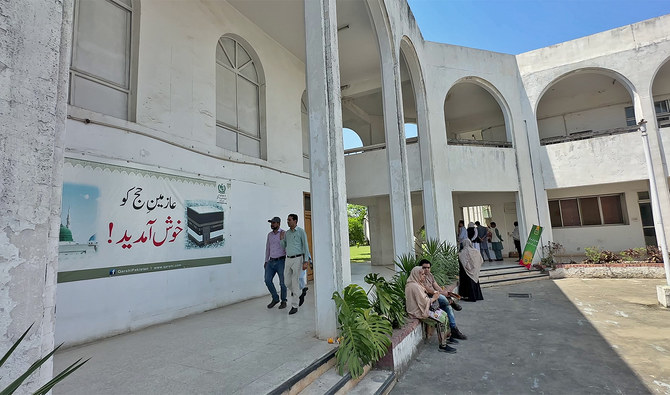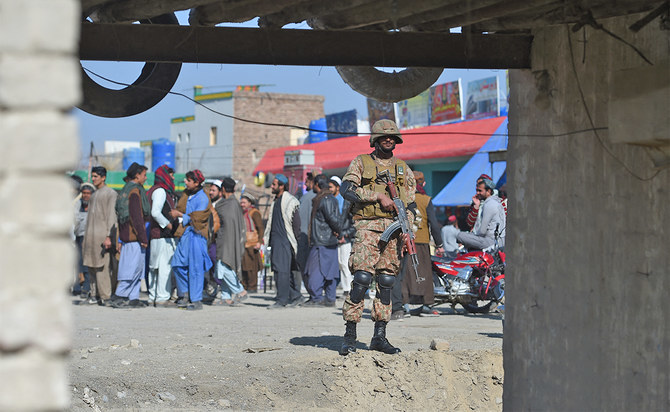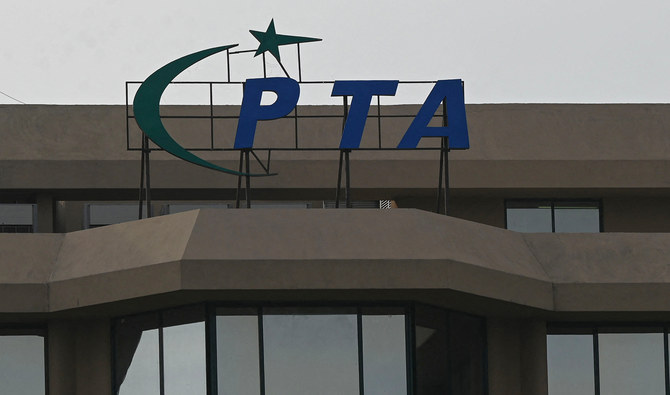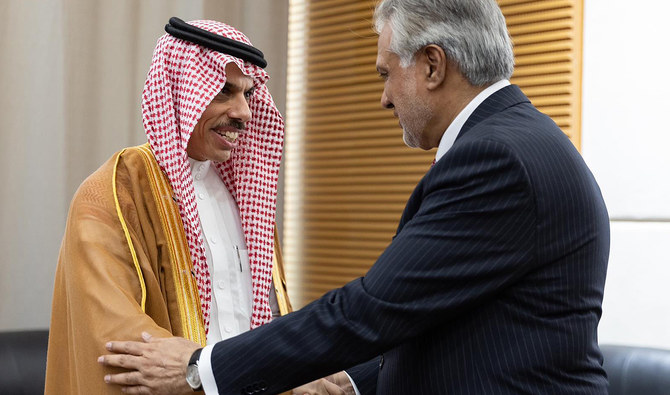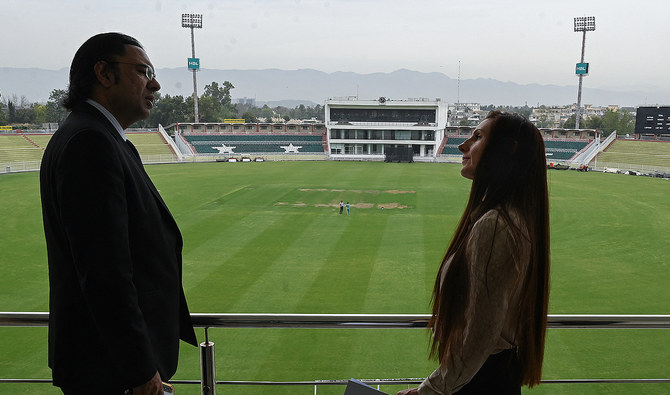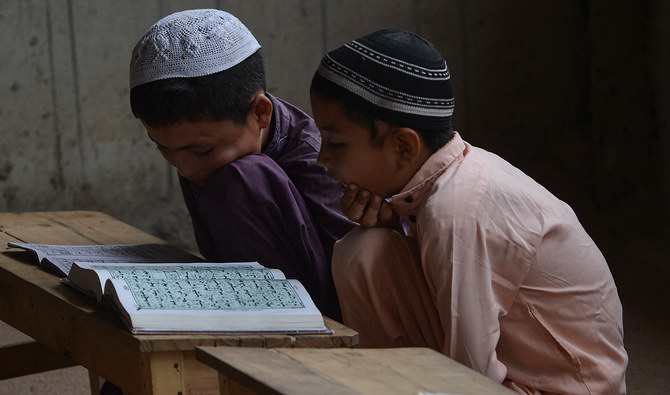ISLAMABAD: The Pakistani government has started training hundreds of volunteers ahead of the annual Hajj pilgrimage to help thousands of pilgrims overcome language barrier and other challenges in Saudi Arabia, besides imparting training to intending pilgrims on how to perform Hajj rituals.
Pakistan has a Hajj quota of 179,210 pilgrims this year. Of them, 63,805 pilgrims will be performing the pilgrimage under the government scheme, while the rest would be accommodated by private tour operators, according to the Pakistani religious affairs ministry. The South Asian country is set to start its Hajj flight operation on May 9, which would conclude on June 9.
The ministry conducts training of Hajj assistants and pilgrims every year ahead of their departure to Saudi Arabia to make sure the whole process, including their food, transportation and accommodation, is managed efficiently. This year, Pakistan will be sending 550 Hajj assistants and 400 doctors and paramedical staff to Saudi Arabia to facilitate the pilgrims.
“The training programs are currently underway at district and tehsil level and Islamabad is one of them,” Noor Muhammad Soomro, a deputy director at the Hajj directorate in Islamabad, told Arab News.
“Ministry of Religious Affairs has made very good arrangements for the pilgrims, and this includes Pak Hajj app. If a pilgrim uses the Pak Hajj app, he gets all the details, including training, vaccination, maps.”
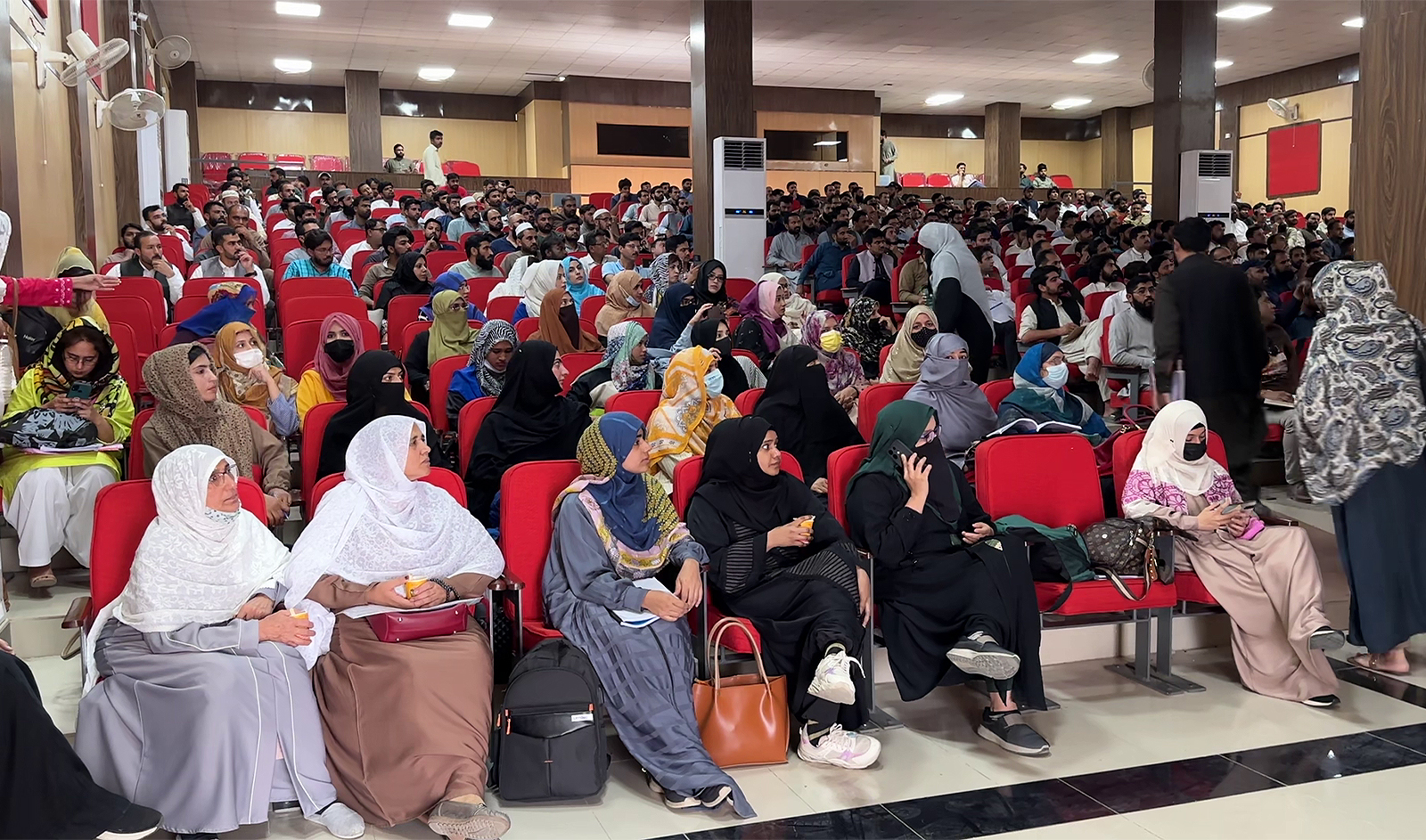
Volunteers participating in the Pakistani mission of this year's Hajj are seen attending a training session in Islamabad, Pakistan on April 23, 2024. (AN photo)
Soomro said each Pakistani pilgrim would be provided with a SIM card having 7GB data to connect with their families back home.
“This time, we will provide the train facility to all those pilgrims who travel to Saudi Arabia on the government scheme in Mina, Arafat and Muzdalifah,” he said.
Hajj is an annual Islamic pilgrimage that has been in practice for over 1,400 years. It is one of the five pillars of Islam and requires every adult Muslim to undertake the journey to the holy Islamic sites in Makkah at least once in their lifetime if they are financially and physically able. This year’s pilgrimage is expected to run from June 14 till June 19.
Instructors have been training Hajj assistants and intending pilgrims at a sprawling auditorium at the Islamabad Hajji Camp, where they can also visit different stalls to purchase Hajj items like Ihram, umbrella and towels.
“This training is basically the introduction of the duties of Hajj,” Sanober Khaliq Baloch, a Hajj assistant, told Arab News. “Hajj assistants would be performing those duties for example the induction [of the pilgrims], the transport, the food and obviously about Mina map, a little about the roads and traveling, all these things.”
Speaking about the potential challenges, she said the temperature difference and up to 14 hours of duty could be “daunting,” but she was determined to facilitate the pilgrims in all possible way.
Faisal Hafeez, another Hajj assistant, said he was committed to serve the pilgrims well by taking care of their food, accommodation and transportation.
“Different problems that confront the pilgrims have been discussed here [during the training] and how we are supposed to deal with them and solve the problems,” he told Arab News.
Syeda Munir, who is going to perform Hajj for the first time, praised the training sessions, saying this would help them smoothly perform all rituals.
“This is my third [training] session,” she told Arab News. “They guide us well about how to perform Umrah and Hajj.”




